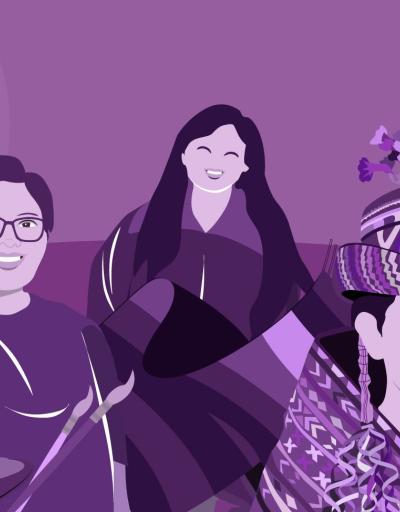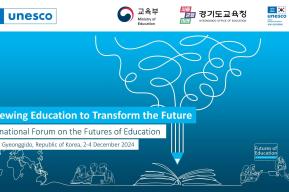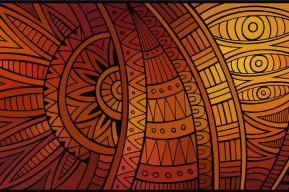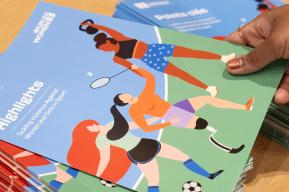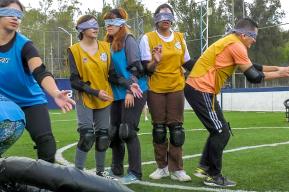Unique learning opportunities for women to promote cultural diversity
Power of education in women
As education has proven its massive transformative power, the history has revealed that women and girls empowered through quality education are the most powerful agent of change. Today we can say without doubt that thanks to their innovative actions against the tide of discrimination, significant progress has been made to incorporate the gender perspective in education over the past years at the global scale.
However, Peru still has a long way to go before ensuring women's access to different levels of education and adopting an integrated teaching approach responding to distinct cultural conditions. According to figures from the National Institute of Statistics and Informatics (INEI, 2021), 24.1% of Peruvian women between the ages of 25 and 29 did not complete secondary education, while 19.9% of men didn’t. In addition to this, gender gap in illiteracy rate was shown; 8.3% of women over the age of 15 were found to be illiterate, which is almost three times higher than that of men (2.9%) (INEI, 2021). What the numbers imply is that women and girls in Peru are facing difficulties in their academic and career development from an early age.
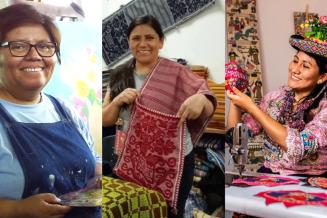
How does gender shape young women's educational trajectories in Peru?
Then, how does a gender education gap vary in local communities and outskirts of central district Lima? 22.7% of girls turned out to become mothers during adolescence in rural areas (INEI, 2018). On the other hand, only 6.2% of girls living in rural areas manage to access and complete higher education (INEI, 2018).
These inequalities are also being observed within the cultural sector. According to the ILO, on average in the field of ‘arts, entertainment and recreation’, only 31% of executive management positions are occupied by women globally (UNESCO, 2021). In Peru, men employed in the cultural sector is more than 20% higher than women employees (Ministry of Culture, 2022). In other words, one of the most complex challenges the country faces is empowerment of young women in the cultural sector through higher education.
In this scenario, creating opportunities for more women to access to higher education in cultural management considering cultural diversity has become a key factor to achieve equality and equity in people's educational development in Peru. When a more integrated and culturally responsive approach is adopted to benefit everyone and ensure inclusion in higher education system reflecting the existing cultural and gender gaps, that is where the innovation starts.
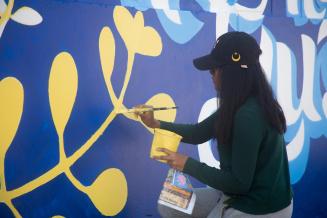
Making the problem visible and creating opportunities
In response to this situation, UNESCO Peru has been offering a Cultural Managers Scholarship (Beca Gestoras Culturales in spanish) in partnership with the Lima Art Museum and the Antonio Ruiz de Montoya University. Since 2020, this programme has been providing free training opportunities on cultural management for women working in the arts and culture sector. To date, the scholarship has been announced with 5 editions, having benefitted 17 art and culture workers from 8 regions of Peru.
The scholarship is aimed at empowering women cultural managers carrying out commendable cultural activities to boost their work in the regions. Furthermore, the program also focuses on opening up a chance to women who need special protections or those belonging to minority groups or living in rural or remote communities bearing heavy burden of household work with family care responsibilities.
To attend higher education in culture-related programmes that integrate a gender mainstreaming approach also contributes to reducing the intergenerational transmission of poverty at the family level. The activities and knowledge gained from the Cultural Managers Scholarship allow women to connect their local talent and cultural know-hows with the situations each woman is living and further give them access to dignified work.
On the other hand, participation of women with diverse ethnic identities contributes to the safeguarding of Intangible Cultural Heritage. It seeks to raise awareness among women on its function as a creator of a sense of individual and collective belonging.
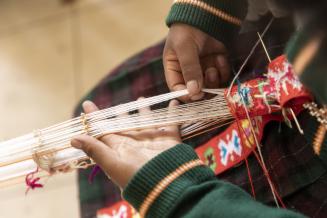
Women blazing trails on inequality
Many of the scholarship holders stated that they have been granted new professional development opportunities.
Such is the case of Judith C. from Amazonas, who has managed to win the Economic Incentives for Culture of the Ministry of Culture with her project Rescue of the culture and traditions of my land (Rescate de la cultura y tradiciones de mi tierra in Spanish).
"Winning a Cultural Managers Scholarship gave me the opportunity to acquire academic knowledge and be trained as a cultural manager. This has opened many doors for me to work in my hometown, as I am taking part in cultural projects and transmitting craft techniques in different towns in Amazonas. The subjects I studied provided me with the necessary tools to manage cultural projects", says Judith C.
Similarly, Liz D., from Ucayali, Peru, is another scholarship winner with her project Ainbo, creative women artists (Ainbo, mujeres artistas creativas in spanish). "Living outside Lima made it more difficult for me to access to cultural training programmes. The scholarship made me value my work more and build self-confidence trusting my abilities.", says Liz D.
Violeta Q. from Ayacucho, Peru, a winner of the Bicentenary Art Competition and finalist in the National Painting Competition of the Central Reserve Bank of Peru, said: "Thanks to the scholarship I love my work more. I am convinced that cultural management is indispensable for the integral development of our society. I also learned the importance of deepening our study and research habits in order to strengthen them."
There is still much work to be done to break down barriers of access and equity, but, standing hand in hand with arts and culture women workers in Peru, we will keep working towards a society that encourages diversity and is free of violence against women's cultural rights.


